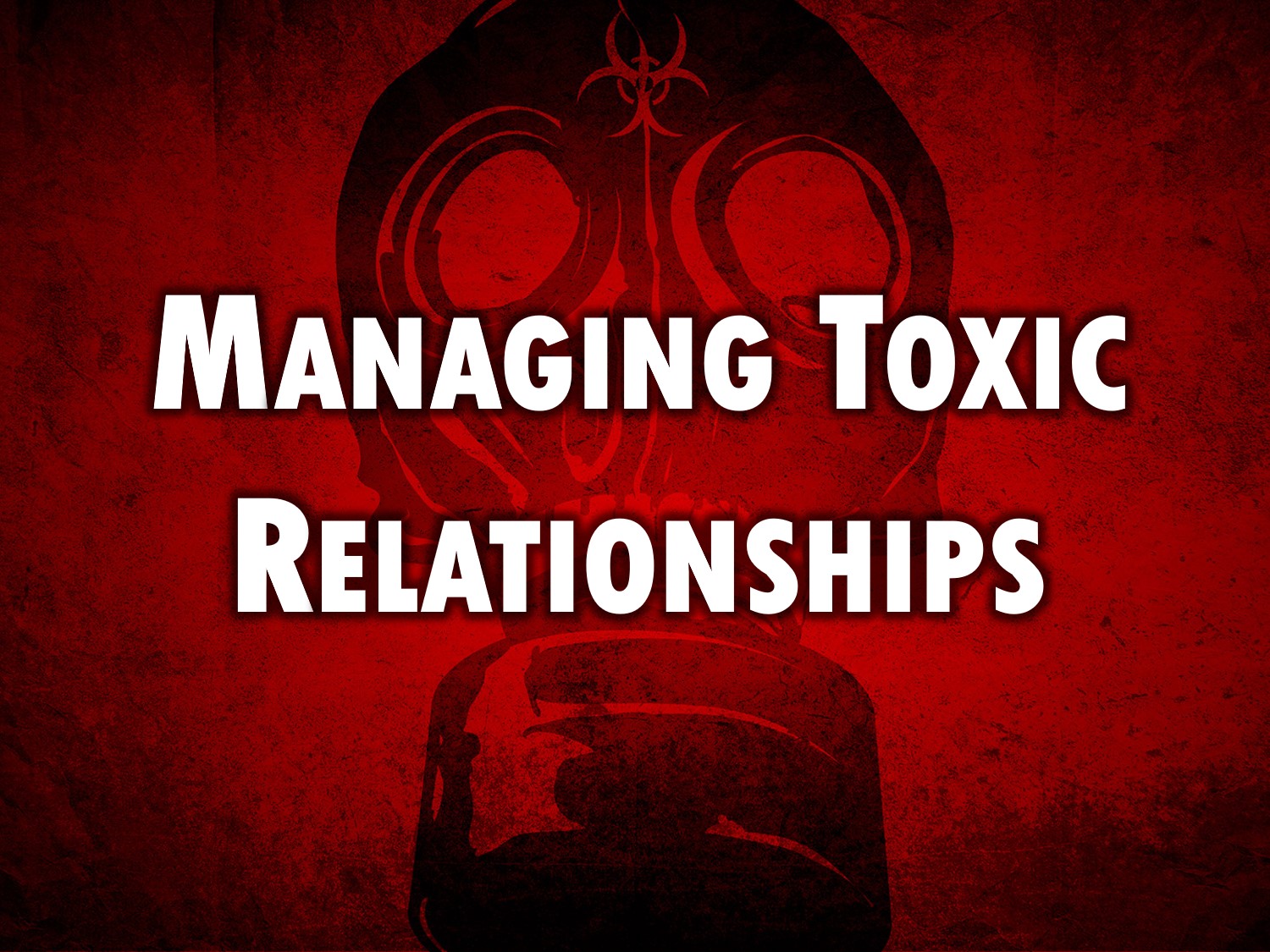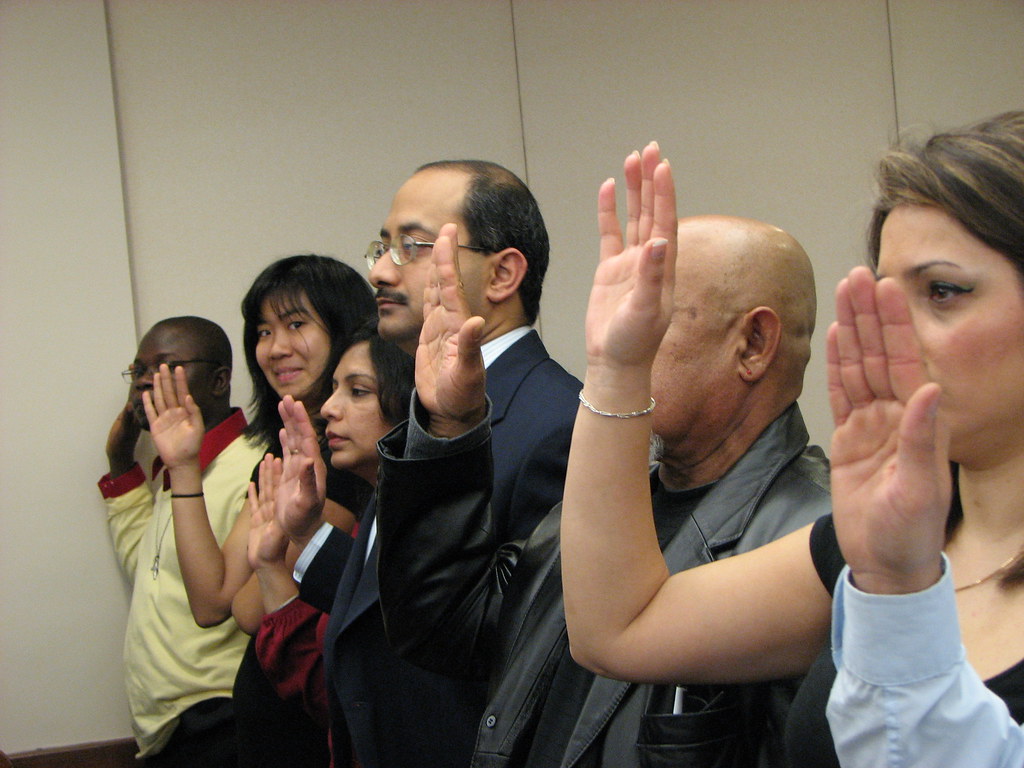Blog
M. W. Bassford
Potluck Bible Classes
Wednesday, March 11, 2020
Several weeks ago, I got a distressed phone call from one of the sisters at Jackson Heights. She expressed her concern that in one of the adult Bible classes, it didn’t seem like anyone was talking. I sympathized with her and promised that I would write a blog post on the value of Bible-class participation, so here we are!
To me, one of the most beautiful things about the churches of Christ is our core belief: that ordinary Christians are equipped by God to read and understand the Bible for themselves. We don’t need priests, pastors, or anyone else to tell us what to believe. We can figure it out on our own.
I think a Bible class is one of the highest expressions of this ideal. Maybe we don’t know much about the Bible ourselves (though this assumption is often mistaken when it comes to brethren), and maybe we’re in a class with other Christians who don’t know much about the Bible either (ditto), but the few things that we each know usually aren’t the same things.
As a result, a good Bible class is like a potluck dinner. Nobody wants to make a meal out of nothing but their green-bean casserole. However, when we bring our casserole, and somebody else brings their Jell-O salad, and somebody else brings their ham, and somebody else brings their iced tea, and so forth, the result is a meal that will satisfy everybody. I’ve never heard anyone complain about being underfed at a potluck!
In the same way, even if that auditorium or classroom isn’t filled with top-notch Bible scholars, it’s probably true that everybody in the room has something to contribute. Maybe it’s an answer to the who’s-buried-in-Grant’s-Tomb opening question. Maybe it’s a related passage. Maybe it’s a personal experience with the spiritual concept under discussion.
Probably none of those things would be enough to carry a sermon, for instance, on their own. However, when you put them all together, what you really are doing is pooling the spiritual wisdom of the group. I respect ordinary Christians as individuals, but I have a whole lot of respect for what ordinary Christians come up with when they put their heads together! In fact, I can’t recall having been in a discussion-based class without feeling nourished and edified by the discussion. As much as I love worshiping in song, I love studying the Bible with my brethren just as much.
Potlucks work. You’re never sure beforehand just how they’re going to work, but they always end up working. The only way they can fail is if the participants don’t bring anything but show up expecting to eat anyway. In the same way, what sinks a Bible class is not the comments that the people in the class make. It’s the comments they don’t make. You’ve got the poor Bible class teacher up in front with his green-bean casserole all by himself, and it makes for a poor meal.
In conclusion, then, I have this to say: if you’re used to sitting there in Bible class not talking, now’s the time to start (unless, of course, you have conscience issues with participating). You know more about the Bible than you think you do, a lot more. Trust me! I’ve studied with folks who truly knew nothing about the Bible, and the difference is profound. You have insights that are wiser than you think they are. You have experiences that are more relevant than you can imagine.
Share what you have. If everybody will do the same, I guarantee that everybody will be well fed.
Managing Toxic Relationships
Tuesday, March 10, 2020
About three weeks ago, a minor tragedy occurred. Evernote, the program on my phone that I use to keep track of everything, including my sermon and blog-post ideas, crashed. Post-crash, I discovered that Evernote hadn’t synced since June 2019, so all of those ideas are gone forever. That means that if you asked me to preach a sermon on something and you haven’t heard the sermon yet, you probably aren’t going to unless you remind me of the request! For that matter, if you’d like to hear me preach on something and haven’t asked, I’d love to hear your question!
However, since the Great Evernote Crash of 2020, I have had other requests trickle in. This evening’s request actually comes from a sister who lives out-of-state, but because I know that this is relevant to people in this congregation too, I decided to turn it into a sermon. She wanted to know how one should deal with toxic people in one’s life, particularly close relatives who are toxic. Let’s consider, then, how to manage toxic relationships.
Here, I think the first thing that we must do is to RENEW OUR MINDS. Paul makes this point in Romans 12:2. Here, he tells us that there are two ways we can think. We can have a worldly mindset, which will conform us to the world, or we can have a spiritual mindset, which will lead us to be transformed into the image of Christ. Perhaps the most global struggle we engage in is the struggle to renew our minds, to daily think less like the world and more like Christ.
One of the characteristics of our worldly society is its love of labeling people. You’re black, you’re white, you’re straight, you’re gay, you’re rich, you’re poor, and that’s all I need to know about you to know who you are. All of these labels divide and create hostility, and that’s the work of the devil. By contrast, God calls us to be one in Christ Jesus, to love one another and love Him so fully that all these labels recede into insignificance.
When we’re talking about toxic people, or we’re talking about their close cousins, the narcissists, we must recognize that we are labeling others, and we also must recognize how deceptive and dangerous that is. “Toxic” and “narcissist” are worldly labels that people in the world use to dismiss and condemn others. “Narcissist” is at least a clinical diagnosis, but it is widely employed by people who learned all they know about psychology from a Buzzfeed article. I don’t even know what “toxic” means, except maybe, “Here’s somebody who does things I don’t like.”
The thing is, though, that once we have concluded that somebody’s a narcissist, that somebody’s toxic, our society gives us permission to write them off. We no longer have an obligation to try to understand their bad behavior, except maybe by reading more articles on Buzzfeed that tell us how awful toxic people and narcissists are. We don’t have to try to help them because toxic people and narcissists are irredeemably evil. We can shun them with a clear conscience because, well, they’re toxic and narcissistic! Perhaps most of all, we don’t have to examine ourselves and ask how our own unloving hearts and bad behavior have contributed to the breakdown of a relationship. Those labels do a great deal to help people who want to be self-righteous, but they do nothing to help us be more like Christ.
Instead, as Christ’s disciples, we are called to seek to understand others and have compassion. In many cases, we begin by remembering THE POWER OF FEAR. Consider the words of John in 1 John 4:18-19. According to John here, the opposite of love isn’t hatred. The opposite of love is fear. In my life, I can’t think of anybody I know who did awful things because of hatred. However, I can think of plenty who sinned egregiously because they were afraid.
This should transform our understanding of people who tend to get stuck with those labels of toxic and narcissist. Often, they seem very powerful and strong to us. They say shockingly hurtful things to us that we never would say to anyone. They make decisions that seem calculated to make us suffer. Indeed, they make us feel like we’re a helpless animal in a cage, and they’re taking joy in tormenting us.
However, if we could see the world through their eyes, we would see something very different. They don’t feel strong and powerful. They feel vulnerable and weak. All of those behaviors that seem so offensive to us, in every sense of the word, seem defensive to them. They are trying to protect themselves from being hurt, from losing something they love, from appearing as a failure, from becoming valueless.
I don’t say any of this to minimize the evil that fearful people do or the damage that they cause. Make no mistake: those who let fear rule in their lives are letting the devil rule, and they will not inherit eternal life! Instead, I say it so that we can understand them.
Most of us don’t know what it’s like to hurt others because we are feeling strong and powerful. I think all of us, though, if we are honest, will admit that we know what it’s like to hurt others because we are feeling hurt and weak and afraid. We don’t get to write off all those toxic narcissists because, on some level, we are the same as they are.
Ultimately, then, we must deal with the hurtful, destructive people in our lives by CONSIDERING EACH PERSON. For an example of this in action, look at Jude 22-23. Jude knew that people who were wavering in the faith did so for their own individual reasons, so it wasn’t right to treat all of them in the same way.
Likewise, we have to try to understand the flesh-and-blood people who are in front of us rather than cutting them off because their behavior displays the Ten Infallible Signs of Narcissism. If we react to them by striking back, which is what all of us instinctively do, most likely, we are only going to confirm them in their fear and their ungodly behavior, unwittingly confirming our own fears.
Instead, over time, we have to show them that they don’t have to be afraid, so that they will see that the sins they think are defensive really aren’t necessary. We can’t minimize their sin, but we also must make sure that when we speak truth, we do it out of love rather than a selfish desire to elevate ourselves at their expense. Additionally, we need to remember that the ugly coping strategies that they’ve spent years learning will take years to unlearn too—even if they’re working on it.
Sadly, some don’t want to work on it. They are sunk so deep in sin and fear that the pain of confronting the truth about themselves is too great for them to consider. We have to be honest about that too. Helping a sinner is one thing; throwing pearls before swine is another.
Finally, we have to recognize when we’re dealing with someone who isn’t motivated by fear. A couple of years back—let the reader understand—I got to know somebody pretty well who did not hurt people because he was afraid. He hurt people because it was exciting to hurt them, because all the resultant commotion was interesting. Those people also are beyond us. It’s a cliché to say that somebody needs professional help, but those people truly do.
Your Kingdom Come
Monday, March 09, 2020
Like many who were raised by Christian parents, I can remember being taught as a child that Christians today weren’t supposed to pray the prayer of Matthew 6:9-13, variously known as the Model Prayer (to brethren) and the Lord’s Prayer (to everyone else). In support of this claim, my teachers made two main arguments.
The first was that the entire context of Matthew 6:5-15 is a warning against vain repetition, and repeating the words of the Lord over and over again is likely to reproduce the same problem He was warning against. I think that’s legitimate. We’re supposed to pray from the heart rather than defaulting to the easy minimum of rote repetition and prayer clichés.
The second, though, insisted that the Lord’s Prayer was no longer appropriate because it contained the words “Your kingdom come.” According to this way of thinking, the kingdom of God came with power on the day of Pentecost in Acts 2, so we should not expect further comings of the kingdom now.
I suspect that this argument goes back to the premillennial controversy of a century ago. At that time, premillennialists argued (as they do now) that the millennium would begin with the beginning of Jesus’ reign as King in Jerusalem. In response, brethren pointed out that Jesus is reigning as King now (see Colossians 1:13), so it is hardly reasonable to expect His coronation to take place in the future too! Through the years, this argument became separated from its context and mutated into a belief in the once-and-only-once coming of the kingdom on Pentecost.
However, this understanding fails to take into account the varied nature of the Scriptural witness about God’s kingdom. At times, Jesus speaks of the kingdom as having already come during the time of His ministry (Luke 11:20). At others, He anticipates a distant event that only some of His followers would remain alive to see (Matthew 16:28). At still others, He foretells a coming of the kingdom that wouldn’t be accompanied by outward signs at all (Luke 17:20-21). None of these things line up with the events of Pentecost.
Instead, we must understand the coming of God’s kingdom as something that happens not once, but multiply. It occurs whenever God asserts His dominion and His sovereignty is revealed. Thus, it is equally legitimate to speak of the kingdom coming when Jesus casts out a demon, when the Holy Spirit falls upon the apostles on Pentecost, when the Jewish nation is judged for rejecting the Messiah in 70 AD, and even when a penitent sinner first submits to Jesus. All those things proclaim God as King.
Today, unless Christians are interested in entreating God to rise up and judge the nations (which seems like a perilous thing to do!), it is this latter sense that most concerns us. In Matthew 13:33, Jesus compares the kingdom to leaven that is kneaded into bread dough. It works invisibly, yet it transforms its environment. So too, we ought to pray for the gospel to work in the hearts of those around us, until a change that we cannot see produces a life of obedience to Christ. May Your kingdom come in this way, O God, until no hearts remain that have not yet received it!
Sex, Identity, and Scripture
Thursday, March 05, 2020
Last week, Josh Collier preached for the congregation here about the challenges facing young people and their parents. He described the typical progression from churchgoing child to atheist: teenager has questions, gets fluff instead of strong Biblical answers to those questions, and looks for answers from YouTube skeptics instead.
I have to be honest, brethren. That sermon convicted me. It made me want to be sure that I, personally, was a preacher who tackled tough questions head-on instead of spouting feel-good claptrap from the pulpit.
In particular, Josh mentioned that many teens have questions about gender and sexual identity. I think Clay did a great job of laying out an entire philosophy of Biblical sexuality during his sermon series late last year, but this morning, I want to zero in specifically on those questions. Our society has all kinds of things to say about sexuality that are completely at odds with what Christians have traditionally believed. What does the Bible say about these things? Over the next several minutes, let’s consider sex, identity, and Scripture.
I think this discussion must begin, though, with an exploration of LOVING OUR NEIGHBOR. Paul lays out what this means in Romans 13:8-10. Here, we learn that as Christians, we are responsible for treating those around us in a consistently loving way. With respect to our subject this morning, it means several things.
The first of these is that love means respecting others’ choices. God has given all of us the gift of free will, and as part of that, we have the freedom to make the wrong decision. Those around us are entitled to their choices, even when, and especially when, we don’t agree with them.
Being a Christian means that we don’t try to coerce others into doing what we think is right. It means that we don’t harass, bully, insult, or belittle them. It means that we always speak of them respectfully, even in our conversations with one another. It means, in fact, that we treat them with the same kindness and consideration we hope they would extend to us. All this is true whoever the other might be.
However, love doesn’t mean approving of others’ choices. This is one of the big lies that the world tells. They try to get us to believe that loving someone means endorsing their behavior, and if we aren’t willing to endorse their behavior, we don’t actually love them. In fact, says the world, we hate them.
I reject that, and I reject it emphatically. The Scriptures tell us that love does not rejoice in unrighteousness, and if I love someone, and I see them being unrighteous, how could I rejoice in that? How can I pat someone I love on the back and tell them they’re doing right when I know that their feet are set on the path to hell? That’s not love. It’s selfishness and deceit.
The flip side of this is that love speaks unwelcome truths. This doesn’t mean that all of us have to march down the street telling passersby that they’re going to hell. It does mean, though, that we must remain steadfast in proclaiming Biblical principles that others find offensive. It also means that when those we love are entangled in sin, we must have the courage to speak up. All of this is universally true too.
Now that we’ve reminded ourselves of our duty to treat everyone in a godly way, let’s consider the Bible’s teachings on GENDER IDENTITY. Our analysis here should begin with the words of the Lord in Matthew 19:1-4. The question of transgender, of course, is not one that had arisen 2000 years ago, but the principles that Jesus lays out here tell us which way we need to go.
He reveals that male and female are not social constructs. Instead, they exist because God created them male and female. Gender is a biological fact. If you were to test my DNA right now, you would find that I have an X chromosome and a Y chromosome. If you were to test my wife, you would find that she has two X chromosomes. This is because God intended for me to be male and for her to be female.
Everybody knows that biological gender is a fact and, if pressed, will acknowledge it. However, many in our society will insist that one’s feelings about maleness or femaleness are more important than that biological fact. From a Biblical perspective, this doesn’t make sense.
Instead, we must regard our DNA as God’s decree about who we are. Because we are created as male and female, God expects us to conduct ourselves according to His laws for male and female. If we do otherwise, we are deceiving ourselves about our true nature, and our conduct does not honor Him.
Some attempt to rebut this argument by pointing to genetic exceptions. There is some extremely small percentage of people out there whose DNA has become mutated so that it is not obvious whether they are male or female. I acknowledge that these exceptions exist. Unlike Adam and Eve, none of us have perfect DNA, and no one has had perfect DNA for millennia. Mutations are part of living in this fallen world.
However, we should not allow this extremely rare biological ambiguity to justify uncertainty about God’s will in cases where no ambiguity exists. The vast majority of trans people are unambiguously male or female in a biological sense. Their problem is not confusion. It is unwillingness to submit, and we must consider them accordingly.
Finally, let’s examine the subject of SEXUALITY. Again, the words of Jesus are extremely relevant here, this time in Matthew 19:5-6. As Clay observed several months ago, this passage lays out the God-approved pattern for sexuality. Godly sex involves the joining of husband and wife. Anything that is not husband and wife coming together is not godly intimacy. This involves various forms of heterosexual immorality, but it also includes the practice of homosexuality. Those who practice any of these things will not inherit the kingdom of God.
Notice, though, what it is that is outside of God’s will. Today, the issue of sexual practice has become confused with identity, so that people who never have been intimate with anyone will describe themselves as gay. In the Bible, though, “homosexual” is not some kind of global human identity. Instead, the Bible is entirely concerned with temptation and whether we give in to it.
It is not a sin to be tempted. Jesus Himself was tempted. If there is some Christian who is tempted to homosexual acts throughout their life, but they resist that temptation, they are righteous in God’s eyes. Admittedly, those who are inclined only to their own gender must be celibate, but that’s no more than we expect from any unmarried Christian. Only husband and wife have the right to be intimate.
Being tempted is not a sin, but giving in to temptation is. When we repent, we can find God’s forgiveness, but if we don’t repent, we never will be right with Him. Our society today endorses all sorts of sins, but in the end, we know that God will judge the sexually immoral.
Swearing Oaths
Tuesday, March 03, 2020
At first glance, Matthew 5:34 appears to be a simple passage to interpret. Jesus says, “Don’t take an oath at all,” so Christians should. . . take no oath at all. Like the Quakers, when we are asked to swear to tell the truth in a court case, we should affirm instead.
However, this facial interpretation fails to take into account everything else we know about oath-swearing in Jewish society at the time of the New Testament. Jesus Himself gives us more insight into the matter in Matthew 23:16-22.
This passage says a great deal about the hearts of the Jews and their purposes in swearing different kinds of oaths. It invites us to consider the thought process of a “religious” Jew who has a deceitful heart. He wants to be able to lie when it’s advantageous to him, but he also wants others to accept his word sometimes.
As a result, he comes up with the idea of confirming his word with an oath when he wants to be believed. “I’ll swear by the holy temple of God! That’s what I’ll do!” However, this deceitful Jew discovers that he has a problem. Nobody believes him unless he swears an oath, and if he swears an oath, he doesn’t feel free to lie.
He still wants to be able to trick people sometimes, so he comes up with a hierarchy of non-binding and binding oaths. Now, he can swear by the temple and feel free to lie his head off, but if he wants people to believe him, he will swear by the gold in the temple. He can use the impressive-sounding but meaningless oath to deceive outsiders while still being able to show insiders his good faith.
Apparently, temple/gold wasn’t the only non-binding/binding pair. Crafty Jews would also use altar/gift and heaven/God’s throne, depending on whether they wanted to deceive or to be believed.
Jesus points out, though, that the whole enterprise is morally bankrupt. Regardless of whether they thought their oath by a holy thing was binding, they still were swearing by a holy thing. Failing to keep any such oath brought dishonor on the One who made the holy things holy in the first place.
It is this corrupt hierarchy of oaths that Jesus is condemning in Matthew 5. It’s the idea that sometimes, God’s people should feel bound to tell the truth, but at other times, they can feel free to lie. If that’s what you’re using oaths for, Jesus says, you need to quit swearing them.
Today, Christians must tell the truth at all times and in all circumstances. As a result, the whole question of oath/not-oath is meaningless to us, like circumcision/not-circumcision is meaningless to us (as per Paul’s point in Galatians 5:6). Oath-swearing and circumcision simply don’t have the same significance in our cultural context as they did 2000 years ago.
Certainly, we should examine our hearts if we find ourselves feeling the need to swear oaths on our own. I’m reminded here of a childhood acquaintance who was a notorious liar and so went around exclaiming, “I swear to God!” all the time. If we have to swear an oath before others will believe us, we’ve got a serious spiritual problem.
However, the Christian who is summoned to court need not feel a pang of conscience when they are asked to swear an oath (though if they do and ask to affirm instead, that’s acceptable too). I’m going to tell the truth if asked to swear, and I’m going to tell the truth if not asked to swear. It makes no difference to me. The truth is what matters, and only when we speak truly is God glorified.


